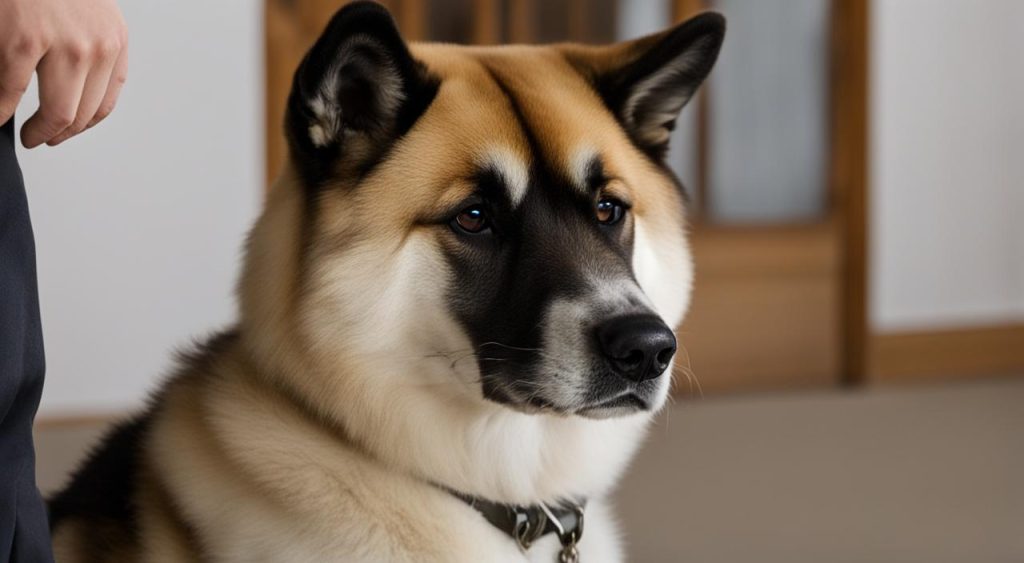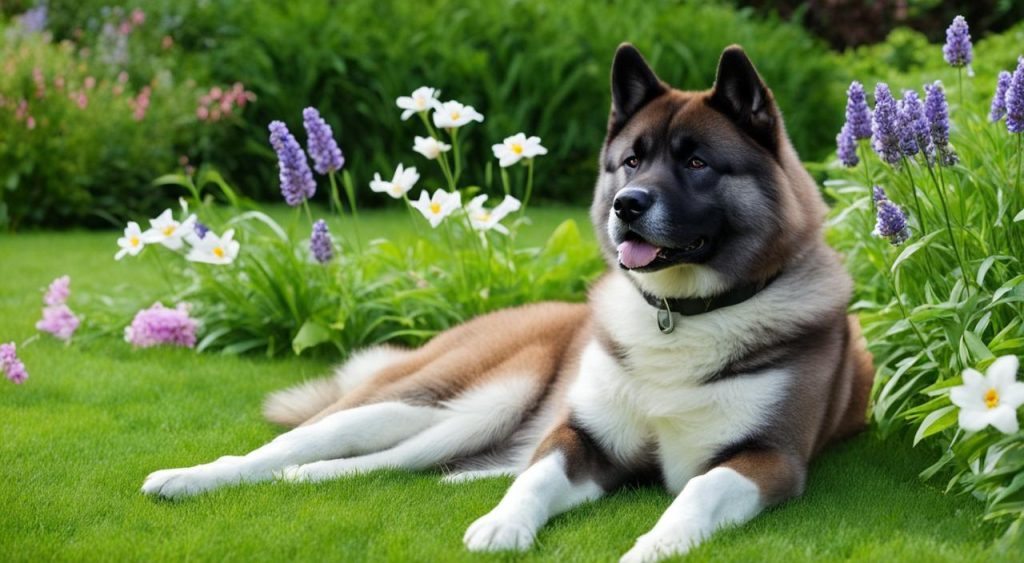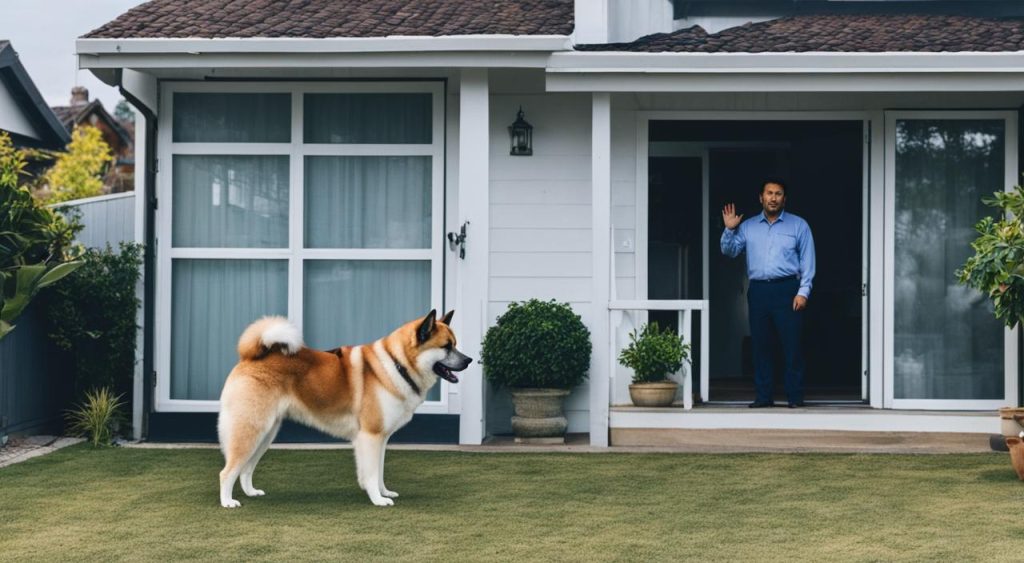Akitas have earned a reputation for being stubborn and difficult to train, but is this really the case? In reality, Akitas are intelligent and loyal dogs, and their perceived stubbornness may stem from various factors, such as lack of proper training and understanding.
It is essential to dispel the misconception that Akitas are inherently stubborn or stupid. According to the American Kennel Club’s breed standard, Akitas are known for their intelligence and loyalty. Believing otherwise can perpetuate negative stereotypes and biases against the breed.
When it comes to training Akitas, the responsibility lies with the owner. Proper training requires knowledge, dedication, and patience. Consistency, positive reinforcement, and effective communication are key elements in successfully training any dog, including Akitas.
Training Techniques for Stubborn Akitas
To effectively train a stubborn Akita, it is important to use positive reinforcement techniques and establish clear boundaries and expectations. Here are some tips:
- Be consistent in your training approach and use positive reinforcement, such as treats and praise, to reward desired behaviors.
- Start training early and be patient. Akitas are known to mature slowly, so it may take time for them to fully grasp commands.
- Use firm, yet gentle, commands and avoid harsh punishment as it can lead to fear or aggression.
- Keep training sessions short and frequent to maintain their interest and focus.
- Ensure your Akita gets plenty of physical and mental exercise to prevent boredom, which can contribute to stubborn behavior.
Managing the Stubbornness of Akitas
Understanding and managing the stubborn nature of Akitas is crucial for a harmonious relationship with your dog. Here are some additional strategies:
- Establish yourself as the pack leader by consistently enforcing rules and boundaries.
- Provide mental stimulation through puzzle toys, interactive games, and obedience training. Akitas thrive when their minds are challenged.
- Practice patience and remain calm in difficult situations. Akitas are sensitive to their owner’s emotions and respond better to positive reinforcement.
- Socialize your Akita from a young age to expose them to different people, animals, and environments. This can help reduce their stubbornness and promote better behavior.
- Consider seeking professional training or guidance if you’re struggling to manage your Akita’s stubbornness. An experienced trainer can provide valuable insight and tailored techniques.
Key Takeaways
- Contrary to popular belief, Akitas are not inherently stubborn or difficult to train. They are intelligent and loyal dogs.
- Proper training techniques, including consistency, positive reinforcement, and effective communication, are essential for successfully training Akitas.
- Avoid reinforcing negative stereotypes about Akitas by understanding their true nature and providing them with the necessary training and socialization.
- Establishing clear boundaries, offering mental stimulation, and seeking guidance when needed are key strategies for managing the stubbornness of Akitas.
- Akitas thrive in an environment where they are challenged mentally and provided with positive reinforcement based on their good behavior.
Training Techniques for Stubborn Akitas
Training a stubborn Akita requires patience, consistency, and positive reinforcement. By utilizing effective training techniques, you can overcome their perceived stubbornness and foster a strong bond with your Akita. Here are some tips to help you in training your stubborn Akita:
1. Be Consistent
Consistency is key when training any dog, especially stubborn Akitas. Establish clear rules and boundaries right from the start and ensure everyone in the household follows them consistently. Akitas thrive on routine and structure, so sticking to a consistent training schedule will help them understand what is expected of them.
2. Use Positive Reinforcement
Positive reinforcement is an effective training method for Akitas. Reward your dog with praise, treats, or toys when they display desired behavior. This positive reinforcement will motivate your Akita and reinforce the idea that good behavior brings rewards. However, it is important to note that positive reinforcement should be immediate and consistent to be effective.
3. Keep Training Sessions Short
Akitas can have a short attention span, so it’s important to keep training sessions short and frequent. Aim for several short sessions throughout the day rather than one long session. This will help keep your Akita engaged and prevent them from becoming bored or frustrated.
4. Be Patient and Persistent
Training a stubborn Akita can be challenging, but it’s important to remain patient and persistent. Don’t give up easily and stay consistent in your training efforts. With time, your Akita will begin to understand what is expected of them and respond positively to your training.
5. Seek Professional Help if Needed
If you’re struggling to train your stubborn Akita, don’t hesitate to seek professional help from a dog trainer with experience in working with Akitas. They can provide valuable guidance, techniques, and customized training plans to address your specific challenges.
By utilizing these training techniques and approaches, you can overcome the stubbornness often associated with Akitas and build a strong, obedient, and well-trained companion.
Managing the Stubbornness of Akitas
Understanding and managing the stubborn nature of Akitas is crucial for fostering a harmonious relationship with your canine companion. While the Akita breed is known for their strong-willed nature, it is important to approach their training and management with patience, consistency, and positive reinforcement.
Firstly, establishing a clear hierarchy and consistent routines in your Akita’s daily life can go a long way in managing their stubbornness. Akitas thrive in structured environments where they understand their place in the family hierarchy. Consistent rules, boundaries, and expectations help them feel secure and reduce potential conflicts arising out of their independent nature.
Additionally, socialization plays a key role in managing the stubbornness of Akitas. Introduce your Akita to various environments, people, animals, and experiences from a young age. This early exposure will help them develop confidence, adaptability, and reduce their tendency to be overly protective or dominant. Socialization also allows them to build positive associations with new situations, which can prevent defensive or stubborn behaviors later on.
Furthermore, positive reinforcement is a powerful tool for managing the stubbornness of Akitas. Reward-based training methods, such as treats, praise, and play, can motivate your Akita and encourage desired behaviors. Their intelligent and loyal nature makes them receptive to positive reinforcement, making it an effective training approach. Remember to be consistent in rewarding good behavior and redirecting undesirable ones to achieve long-term results.





